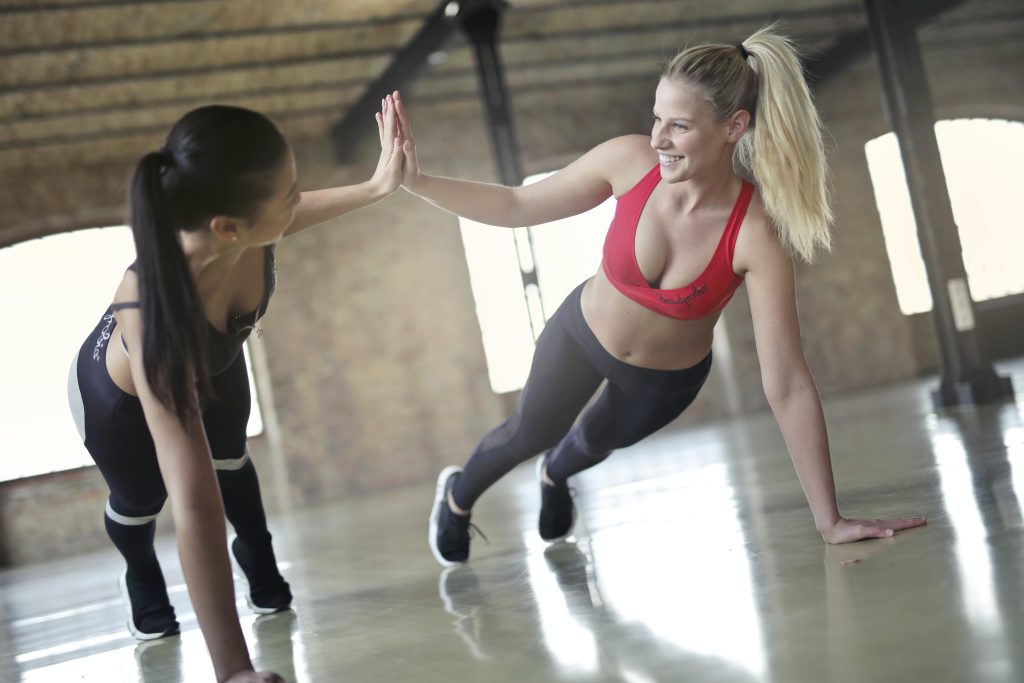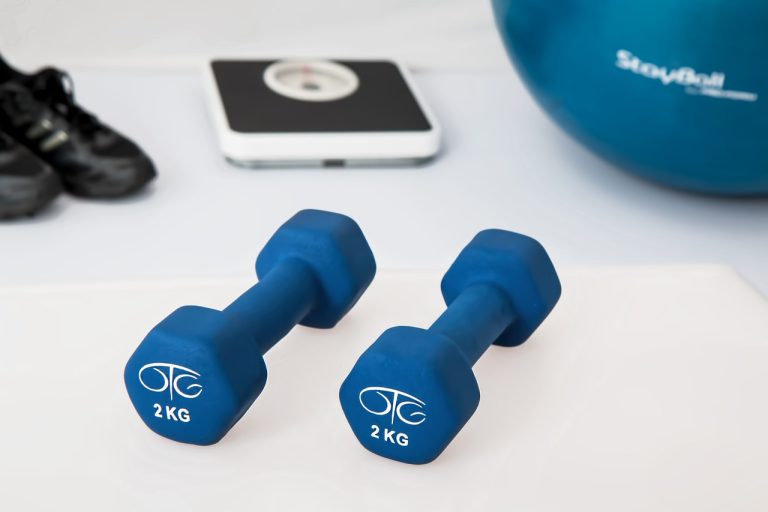Starting a gym routine can be an exciting endeavor, but for many beginners in the UK, it comes with a dose of gym anxiety. The unfamiliar setting, the fear of judgment, and the overwhelming range of equipment can make stepping into the gym a daunting task. However, fear not! In this article, we will explore practical tips and strategies to help you deal with gym anxiety as a beginner in the UK. So, grab your workout gear and let’s conquer those nerves together!
Table of Contents
ToggleUnderstanding Gym Anxiety
What is gym anxiety?
Gym anxiety, also known as exercise anxiety or fitness anxiety, refers to the fear or apprehension people experience when entering a gym or engaging in exercise activities. It is not uncommon for beginners to feel overwhelmed or intimidated when stepping into a gym environment, surrounded by unfamiliar equipment and fit individuals. Gym anxiety can manifest in various ways, including feelings of self-consciousness, fear of judgment, and excessive worry about not knowing how to use equipment properly or performing exercises incorrectly. Understanding and addressing gym anxiety is crucial for individuals to overcome their fears and fully benefit from the gym experience.
Common causes of gym anxiety
Several factors can contribute to gym anxiety in beginners. Limited knowledge about exercise and fitness can make individuals feel insecure about their abilities and increase the fear of judgment from others. Comparing oneself to others who may seem more advanced or fit can also trigger feelings of inadequacy and self-consciousness. Additionally, the fear of making mistakes or looking foolish while using gym equipment or performing exercises incorrectly can be overwhelming. The pressure to meet unrealistic expectations, especially in a society that often emphasizes physical appearance, can further exacerbate gym anxiety. Recognizing the common causes of gym anxiety is the first step in finding strategies to overcome it.
Recognizing the symptoms of gym anxiety
It is crucial to be aware of the symptoms of gym anxiety to address them effectively. Some common symptoms include butterflies in the stomach, increased heart rate, feelings of uneasiness or restlessness, excessive sweating, and difficulty concentrating or focusing on the workout. Individuals with gym anxiety may also experience negative self-talk, thoughts of failure, and a strong desire to avoid the gym altogether. Physical symptoms such as back pain, headaches, or digestive issues may also arise due to heightened stress and anxiety. By recognizing these symptoms, individuals can take the necessary steps to manage gym anxiety and prevent it from hindering their progress.
Building a Support System
Inform a friend or family member
One effective way to overcome gym anxiety is to inform a supportive friend or family member about your fitness goals and concerns. Sharing your anxieties and objectives with someone you trust can alleviate your anxiety and provide emotional support. This person can help motivate you, accompany you to the gym, and provide encouragement during challenging times. Having someone by your side who understands your journey can make the gym experience more enjoyable and less intimidating.
Find a gym buddy
Finding a gym buddy with similar fitness goals can be immensely beneficial in overcoming gym anxiety. Having a supportive partner to share the gym experience with can not only boost motivation but also provide a sense of accountability and camaraderie. It becomes easier to navigate the gym environment when there is someone to ask questions, try out new equipment together, and offer guidance or feedback. A gym buddy can create a positive and supportive atmosphere, making the gym feel more welcoming and less intimidating.
Consider personal training sessions
If gym anxiety persists or feels overwhelming, considering personal training sessions can be a valuable investment. Personal trainers are professionals who specialize in supporting and guiding individuals through their fitness journey. They possess extensive knowledge of appropriate exercises, correct form, and can tailor workouts to individual needs and goals. A personal trainer can provide valuable guidance, teach proper techniques, and offer support and encouragement. Having a professional by your side can increase confidence, reduce anxiety, and ensure you are performing exercises safely and effectively.
Choosing the Right Gym
Research different gym options
Researching various gym options is essential when choosing the right gym. Explore different gyms in your area and gather information about their facilities, services, and membership packages. Reading reviews and testimonials from other members can give you insights into the gym’s reputation and atmosphere. Consider factors such as the gym’s proximity to your home or workplace, opening hours, available equipment, and the variety of classes offered. Choosing a gym that aligns with your preferences and needs will increase your comfort level and overall satisfaction.
Visit the gym before joining
Before committing to a gym membership, it is highly recommended to visit the gym in person. Take a tour of the facilities to familiarize yourself with the layout and equipment. Pay attention to the overall cleanliness and maintenance of the gym, as this can greatly impact your comfort level. Observe the atmosphere, the demographics of the members, and how staff interact with visitors. Feeling comfortable and welcomed in the gym environment is crucial for overcoming gym anxiety and ensuring a positive experience.
Evaluate the gym’s atmosphere and culture
The atmosphere and culture of a gym play a significant role in combating gym anxiety. Choose a gym with a warm and inclusive environment, where individuals of all fitness levels are welcomed and supported. Consider if the gym offers orientations for beginners, as this indicates a commitment to helping newcomers feel comfortable and educated. A friendly and supportive staff is also vital in creating a safe and judgment-free space. Furthermore, inquire about any community events or social activities organized by the gym, as these can provide opportunities to meet like-minded individuals and build a support network.
Setting Realistic Goals
Define your fitness goals
Setting clear and realistic fitness goals is crucial for managing gym anxiety. Take some time to reflect on what you hope to achieve through regular exercise. Whether it is improving cardiovascular fitness, building strength, losing weight, or enhancing overall well-being, clearly defining your goals will give you a sense of direction and purpose. Be specific about what you want to accomplish and establish measurable benchmarks to track your progress effectively. By setting clear goals, you can focus on your personal growth and achievements, reducing the anxiety associated with comparing yourself to others.
Break down your goals into smaller milestones
Breaking down your larger fitness goals into smaller, achievable milestones can help manage gym anxiety. Instead of focusing solely on the end result, create a step-by-step plan that outlines the actions you need to take to reach your goals. Celebrating small victories along the way provides additional motivation and boosts confidence. By setting attainable milestones, you can build momentum and gradually work towards your desired outcomes, ultimately mitigating anxiety associated with feeling overwhelmed.
Track your progress
Tracking your progress is crucial for boosting motivation and managing gym anxiety. Keep a journal or use fitness tracking apps to record workouts, monitor changes in your physical fitness, and track improvements over time. This allows you to reflect on your accomplishments and recognize the progress you are making. Seeing tangible evidence of your hard work can provide reassurance that you are on the right track, inspire you to continue pushing forward, and alleviate any doubts or anxieties about your abilities.
Educating Yourself
Learn basic gym etiquette
Familiarizing yourself with basic gym etiquette is an essential step in alleviating gym anxiety. Understanding common rules and practices will help you navigate the gym environment with confidence and ease. Some basic etiquette includes wiping down equipment after use, re-racking weights, not monopolizing equipment, and respecting personal space. Observing and following these etiquette practices demonstrates respect for others and promotes a positive gym atmosphere, making both you and those around you feel more comfortable.
Familiarize yourself with equipment and exercises
Another effective way to combat gym anxiety is by familiarizing yourself with gym equipment and different exercises. Take the time to learn how to use common exercise machines and free weights properly. Many gyms provide instructional materials, videos, or even workshops for beginners. Understanding how to perform exercises with correct form reduces the risk of injury and boosts confidence. Additionally, familiarizing yourself with various exercises allows you to create a diverse workout routine, keeping your gym experience engaging and enjoyable.
Consider talking to a fitness professional
If you feel unsure about where to begin or have specific questions about exercises or equipment, consider speaking with a fitness professional. Personal trainers or gym staff members are often available to provide guidance, answer questions, or offer demonstrations. They can provide expert advice and personalized recommendations based on your goals and fitness level. By seeking knowledge from professionals, you can gain the confidence and knowledge necessary to navigate the gym environment effectively.
Creating a Routine
Establish a realistic workout schedule
Creating a consistent workout routine is essential for overcoming gym anxiety. Start by establishing a realistic workout schedule that aligns with your lifestyle and commitments. Consider how many days per week you can dedicate to exercise and the duration of each session. Consistency is key, even if the workouts are shorter in the beginning. By creating a routine, you make exercise a habit, making it easier to overcome any initial anxiety or resistance.
Start with simple exercises
As a beginner, it is important to start with simple exercises that you feel comfortable performing. Focus on mastering basic movements and gradually progress to more complex exercises. Starting simple allows you to build a strong foundation, develop proper form, and prevent injuries. Simple exercises such as bodyweight squats, lunges, or modified push-ups can be excellent starting points. As you gain confidence and strength, you can gradually incorporate more challenging exercises into your routine.
Gradually increase intensity
As you become more comfortable in the gym and with your workout routine, gradually increase the intensity of your workouts. This can include increasing the weight you lift, adding more repetitions or sets, or incorporating higher-intensity cardiovascular exercises. Gradually pushing your limits helps you progress and adapt to new challenges, boosting your confidence and helping to overcome gym anxiety. However, it is important to listen to your body and not overexert yourself, as this can lead to burnout or injury.
Utilizing Beginner-Friendly Programs
Join group exercise classes
Group exercise classes can be an excellent option for beginners looking to overcome gym anxiety. Not only do these classes provide structure and guidance, but they also offer a supportive and inclusive environment. Instructors often provide modifications for different fitness levels, allowing beginners to participate comfortably. Group classes also provide an opportunity to meet new people, form connections, and build a sense of community within the gym. By joining these classes, you can benefit from the motivation and camaraderie of working out with others.
Participate in introductory workshops
Many gyms offer introductory workshops or orientations designed specifically for beginners. These workshops often cover basic exercise techniques, gym etiquette, and guidance on creating a workout routine. Participating in these workshops can help alleviate gym anxiety by providing a foundational understanding of fitness and equipping beginners with the knowledge they need to navigate the gym confidently. Additionally, attending these workshops allows you to connect with other beginners who may share similar experiences and concerns.
Explore online workout resources
For individuals who prefer the convenience and privacy of exercising at home, exploring online workout resources can be an effective solution. Many fitness websites, apps, and social media platforms offer beginner-friendly workout programs and tutorials. These resources typically provide step-by-step instructions, video demonstrations, and modifications to accommodate different fitness levels. Utilizing online workouts allows you to gain familiarity with exercises, build confidence, and gradually ease into gym workouts at your own pace.
Managing Social Anxiety
Focus on yourself and your goals
When faced with social anxiety in the gym, it is crucial to shift your focus inward and remind yourself of your own goals and progress. Remember that everyone is at the gym to improve themselves and that nobody is judging you as harshly as you may think. By focusing on your own journey and achievements, you can minimize the impact of potential social judgments. Remember that you are on your own unique fitness journey, and your progress should be your main priority.
Practice positive self-talk
Utilize positive self-talk as a tool to combat gym anxiety. Replace self-doubt and negative thoughts with affirmations and encouraging statements. Remind yourself that you are capable, strong, and deserving of a positive gym experience. Acknowledge and celebrate your achievements, no matter how small, to boost self-confidence. Embrace the process of learning and growing, understanding that every step forward is a step in the right direction. By practicing positive self-talk, you can shift your mindset and approach the gym with a more positive attitude.
Use relaxation techniques
If gym anxiety triggers feelings of stress or restlessness, incorporating relaxation techniques can help manage these emotions. Deep breathing exercises, progressive muscle relaxation, or mindfulness techniques can help calm your mind and body, reducing anxiety symptoms. Prior to entering the gym or during rest periods between exercises, take a few moments to practice these relaxation techniques. By incorporating them into your routine, you can create a sense of calm and ease within the gym environment.
Finding Comfort in Familiarity
Stick to a familiar routine
As a beginner, finding comfort in familiarity can be immensely helpful in managing gym anxiety. Start by creating a workout routine that includes exercises you feel comfortable and confident performing. Establishing a routine allows you to become familiar with specific exercises, equipment, and the overall flow of your workout. As you build confidence and familiarity, gradually introduce new exercises or equipment to expand your comfort zone. By sticking to a familiar routine, you can reduce anxiety and promote a sense of ease in the gym environment.
Identify safe spaces within the gym
When feeling overwhelmed in the gym, identify safe spaces or areas where you feel more comfortable. This could be a quiet corner of the gym, an area with fewer people, or a particular piece of equipment you enjoy using. Creating a small sanctuary within the gym environment allows you to retreat and regroup when needed. By recognizing these safe spaces, you can alleviate anxiety by having a designated area where you feel more at ease and less exposed.
Utilize technology to enhance familiarity
Technology can offer valuable resources for beginners looking to enhance familiarity with the gym environment. Fitness apps and websites often provide virtual tours or interactive maps of the gym layout, allowing you to become familiar with the equipment and facilities beforehand. Some apps even offer video tutorials and exercise demonstrations for specific equipment, providing guidance on proper form and usage. By utilizing technology, you can create a sense of familiarity and confidence before physically entering the gym.
Seeking Professional Help
Consider therapy or counseling
In cases where gym anxiety significantly impacts daily life or becomes debilitating, seeking professional help from a therapist or counselor is highly recommended. These mental health professionals can assist in addressing the underlying causes of gym anxiety and develop personalized strategies to manage and overcome it. Therapy can help individuals identify and challenge negative thought patterns, build self-esteem and confidence, and develop coping mechanisms for anxiety. With the guidance and support of a professional, individuals can work towards a healthier mindset and a more positive gym experience.
Consult with a fitness coach or nutritionist
If gym anxiety is coupled with uncertainties about exercise techniques or nutrition, consulting with a fitness coach or nutritionist can provide the guidance and education needed. Fitness coaches are specialized professionals who can design personalized workout programs, teach proper form, and provide ongoing support and motivation. A nutritionist can offer advice on developing a balanced diet that complements your workout routine and supports your fitness goals. Seeking guidance from these professionals can help build confidence and dispel doubts, making exercise and nutrition choices more manageable.
Join support groups for gym anxiety
Joining support groups specifically dedicated to gym anxiety can be a valuable step towards overcoming fears and finding support. These groups offer a platform for individuals to share their experiences, exchange tips and strategies, and provide mutual encouragement. Engaging with others who are facing similar challenges can normalize gym anxiety and provide reassurance that you are not alone. Support groups can be found online, through social media platforms, or through local fitness communities. By joining these groups, you can build a network of individuals who understand your struggles, offer support, and celebrate your successes.
In conclusion, gym anxiety is a common experience for beginners embarking on their fitness journey. Understanding the causes and symptoms of gym anxiety is essential to effectively address and overcome it. Building a support system, choosing the right gym, setting realistic goals, educating oneself, creating a routine, utilizing beginner-friendly programs, managing social anxiety, finding comfort in familiarity, and seeking professional help are all strategies that can contribute to managing and overcoming gym anxiety. By implementing these strategies and approaching the gym environment with a positive mindset, individuals can confidently navigate their fitness journey and reap the benefits of a healthy and active lifestyle.








